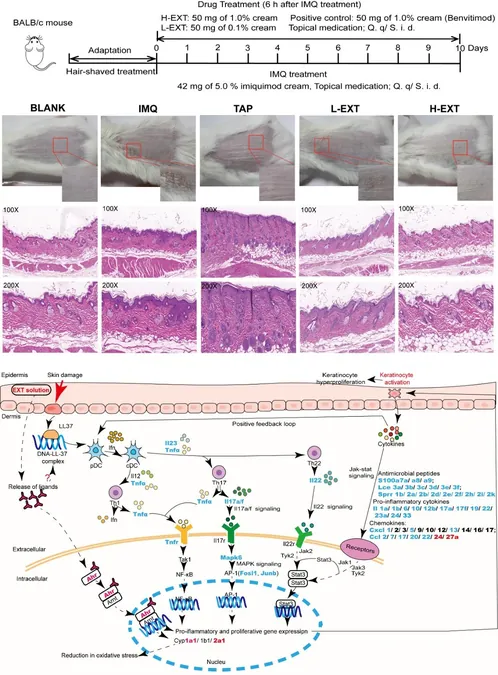
Revolutionary Plant Extract Offers Hope in Psoriasis Treatment!
2024-12-23
Author: Wei
Groundbreaking Study on Psoriasis Treatment
A groundbreaking study has unveiled exciting potential for treating psoriasis using stilbene-enriched extracts derived from the leaves of Cajanus cajan, commonly known as pigeon pea. Led by Professor Qiu Shengxiang at the prestigious South China Botanical Garden of the Chinese Academy of Sciences, this research, published in the Journal of Ethnopharmacology, could pave the way for new, effective psoriasis therapies.
Understanding Psoriasis
Psoriasis is a persistent and often painful skin condition, affecting around 125 million people worldwide. Characterized by thick, red patches covered with silvery scales, psoriasis can be triggered by stress, infections, skin injuries, and immune system disorders. The quest for effective treatments has intensified as researchers aim to alleviate the burdens of this chronic illness.
Historical Use of Cajanus cajan
Historically, the juice from C. cajan leaves has been used to combat various skin conditions and inflammation, particularly in regions like Egypt and parts of Africa and Asia. This rich tradition of use provides a strong foundation for understanding the therapeutic benefits of the plant.
Research Findings
In their study, researchers extracted key compounds like cajaninstilbene, longistylin A, and longistylin C from the ethyl acetate extract of C. cajan leaves. Testing on a mouse model of psoriasis showed that this extract significantly alleviated symptoms associated with IMQ-induced psoriasis.
Molecular Mechanisms
Delving into the molecular mechanisms at play, the team conducted extensive transcriptomic and proteomic analyses. They observed a remarkable downregulation of specific chemokines and pro-inflammatory cytokines, including Ccl2, Ccl20, Il17a, and others that are known to drive inflammation and skin abnormalities. Importantly, the study revealed that the mechanism of action involves the activation of the aryl hydrocarbon receptor (AhR) and the cytochrome P450 gene family—key players in regulating the body’s inflammatory response.
Implications of the Research
This pioneering research represents the very first instance demonstrating how the ethyl acetate extract of C. cajan can effectively mitigate psoriasis symptoms in an experimental setting. The findings suggest that leveraging plant-derived compounds could lead to innovative therapeutic options for millions of individuals grappling with this debilitating condition.
A Hope for Future Treatments
The implications of these findings are promising, not just for psoriasis, but potentially for other inflammatory skin disorders. As interest in natural remedies continues to grow, C. cajan's extract might just be the next big thing in dermatological treatments. Stay tuned as researchers worldwide delve deeper into the vast potential held within the leaves of this remarkable plant!



 Brasil (PT)
Brasil (PT)
 Canada (EN)
Canada (EN)
 Chile (ES)
Chile (ES)
 España (ES)
España (ES)
 France (FR)
France (FR)
 Hong Kong (EN)
Hong Kong (EN)
 Italia (IT)
Italia (IT)
 日本 (JA)
日本 (JA)
 Magyarország (HU)
Magyarország (HU)
 Norge (NO)
Norge (NO)
 Polska (PL)
Polska (PL)
 Schweiz (DE)
Schweiz (DE)
 Singapore (EN)
Singapore (EN)
 Sverige (SV)
Sverige (SV)
 Suomi (FI)
Suomi (FI)
 Türkiye (TR)
Türkiye (TR)